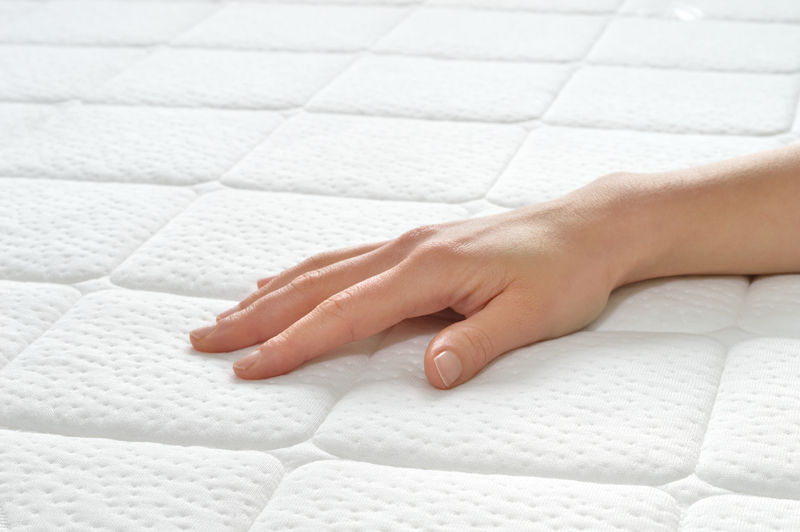Aluminium Cookware: Best Cleaning Practices
Posted on 08/10/2024
Aluminium cookware is a popular choice in many kitchens due to its excellent heat conductivity, lightweight nature, and affordability. However, many people struggle to keep their aluminium pots and pans looking pristine. This article explores some of the best cleaning practices to maintain your aluminium cookware, ensuring it lasts for years.
Why Choose Aluminium Cookware?
Aluminium cookware is highly favored for several reasons:
- Heat Conductivity: Aluminium heats up quickly and distributes heat evenly, making it ideal for cooking.
- Lightweight: Its lightweight nature makes it easy to handle.
- Cost-Effective: Aluminium cookware is generally more affordable than stainless steel or non-stick options.
Despite these advantages, proper cleaning is crucial to maintain the quality and appearance of your aluminium cookware.

Common Issues with Aluminium Cookware
Before diving into the cleaning practices, it's essential to understand the common issues associated with aluminium cookware:
- Staining: Aluminium is prone to staining, especially when it comes into contact with acidic foods.
- Discoloration: Over time, aluminium can oxidize and form a dull, greyish layer.
- Pitting: Improper cleaning methods can cause pitting and damage the cookware's surface.
Best Cleaning Practices for Aluminium Cookware
1. Immediate Cleaning
One of the easiest ways to maintain your aluminium cookware is by cleaning it immediately after use. Leaving food residues or stains can cause oxidation and make the cleaning process more challenging.
1. Rinse: Rinse the cookware with warm water to remove loose food particles.
2. Soap and Water: Use mild dish soap and a soft sponge to clean the cookware. Avoid abrasive sponges that can scratch the surface.
3. Dry: Dry the cookware immediately to prevent water spots and oxidation.
2. Using Natural Cleaners
Natural cleaners are effective and safe for aluminium cookware:
1. Vinegar: Mix equal parts of water and white vinegar. Boil the solution in the cookware for 10 minutes to loosen stains and residues. Rinse and dry thoroughly.
2. Lemon Juice: The citric acid in lemon juice helps remove discoloration. Squeeze fresh lemon juice onto the surface and rub gently with a soft cloth.
3. Baking Soda: Make a paste of baking soda and water. Apply it to stubborn stains and scrub gently with a soft brush. Rinse and dry the cookware.
3. Avoid Harsh Chemicals
Harsh chemicals and abrasive cleaners can damage aluminium cookware. Avoid using cleaning products containing chlorine, bleach, or strong acids. These can cause pitting and corrosion.
4. Removing Oxidation
If your aluminium cookware has oxidized and developed a dull appearance, follow these steps:
1. Cream of Tartar: Mix a solution of 2 tablespoons of cream of tartar and 1 quart of water. Boil the mixture in the cookware for 10-15 minutes. Let it cool, then scrub with a soft sponge. Rinse and dry.
2. Aluminium Polish: Specially formulated aluminium polishes are available in stores. Follow the manufacturer's instructions for best results.
5. Regular Maintenance
Routine maintenance can extend the life of your aluminium cookware:
1. Seasoning: To prevent food from sticking, season your aluminium pans occasionally. Apply a thin layer of vegetable oil and heat it over medium heat. Let it cool, then wipe off the excess oil.
2. Storage: Store your aluminium cookware in a dry place to prevent moisture buildup, which can cause oxidation.
Pros and Cons of Aluminium Cookware
Pros
- Excellent heat conductivity: Ensures even cooking.
- Lightweight: Easy to handle.
- Affordable: Budget-friendly option.
- Versatile: Suitable for various cooking methods.
Cons
- Prone to staining and discoloration: Requires regular maintenance.
- Can react with acidic foods: Potentially altering the taste of dishes.
- Scratches easily: Needs gentle cleaning methods.
Tips for Maintaining Aluminium Cookware
- Use wooden or silicone utensils: To avoid scratching the surface.
- Avoid high heat: Excessive heat can cause warping and discoloration.
- Use soft sponges: For gentle cleaning and to maintain the surface.

Takeaways
1. Immediate cleaning: Prevents stains and oxidation.
2. Natural cleaners: Effective and safe for aluminium cookware.
3. Avoid harsh chemicals: Prevents pitting and corrosion.
4. Routine maintenance: Extends the cookware's life.
5. Proper storage: Prevents moisture buildup and oxidation.
Conclusion
Aluminium cookware is a valuable addition to any kitchen, offering exceptional heat conductivity and ease of use. By following these best cleaning practices, you can maintain your aluminium cookware's quality and appearance for years to come. Remember to avoid harsh chemicals, use natural cleaners, and practice regular maintenance to ensure your cookware remains in excellent condition.
The best way to clean aluminium cookware involves immediate cleaning, using natural cleaners like vinegar and baking soda, avoiding harsh chemicals, and performing routine maintenance. By adhering to these practices, you can extend the lifespan of your cookware and enjoy its benefits for years.

